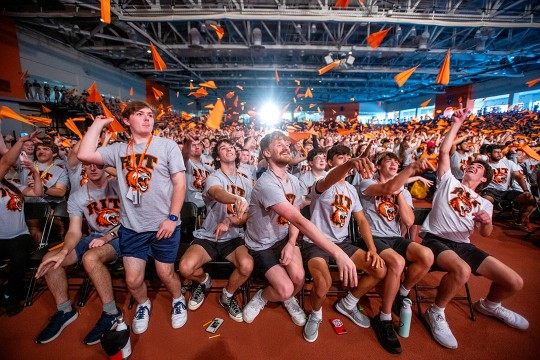
Jennifer O'Neil
Associate Professor, Mechanical and Mechatronics Engineering Tech
Jennifer O'Neil
Associate Professor, Mechanical and Mechatronics Engineering Tech
Education
BS, Rochester Institute of Technology; Ph.D., Purdue University
Bio
Dr. Jennifer O’Neil joined the Rochester Institute of Technology faculty in August 2016 as an Assistant Professor in Mechanical Engineering Technology. She currently studies the spray formation of non-Newtonian liquids to increase the knowledge of flow physics processes and advance the fundamental understanding of fluid dynamics to improve analyses and designs utilizing these substances. Given the broad application of this work, she has completed numerous projects in the fields of aerospace, automotive, alternative energy, biomedical, and pharmaceutical. Dr. O’Neil's current focus is on pediatric nebulizers.
Dr. O’Neil’s current teaching interests include integrating problem- and project-based learning into core mechanical engineering courses to enhance student learning and motivation. Her primary focus being the entrepreneurial mindset. She has won awards for classroom teaching and has disseminated her results in international conferences and journals. She primarily teaches courses at the freshmen level and within the thermal-fluids sequence.
Select Scholarship
Currently Teaching
In the News
-
August 25, 2023

New students are off to a roaring start after convocation
Turn big dreams into reality. That was just one piece of advice for the newest Rochester Institute of Technology students who attended the New Student Convocation on Aug. 24. The annual event included welcomes from administrators, the new Student Government president, and a lesson in adventure featuring RIT President David Munson.
-
November 21, 2023
Ph.D. students present mathematical modeling research
-
October 17, 2023
O’Brien presents on aerosolized medicine delivery




